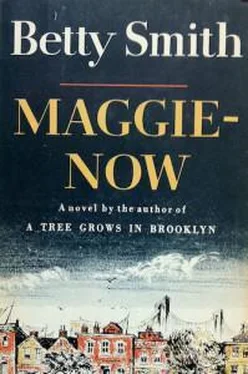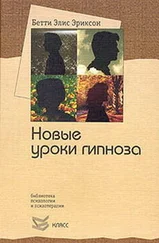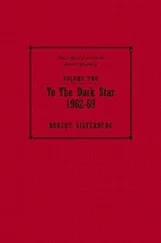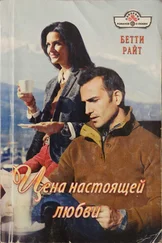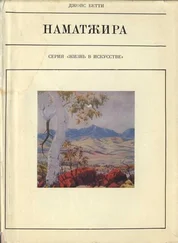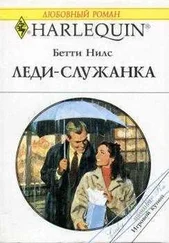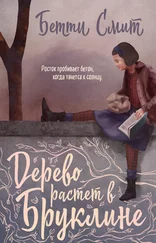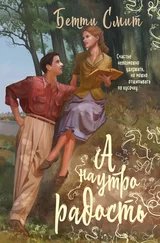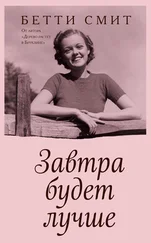Бетти Смит - Maggie-Now
Здесь есть возможность читать онлайн «Бетти Смит - Maggie-Now» весь текст электронной книги совершенно бесплатно (целиком полную версию без сокращений). В некоторых случаях можно слушать аудио, скачать через торрент в формате fb2 и присутствует краткое содержание. Жанр: Проза, на английском языке. Описание произведения, (предисловие) а так же отзывы посетителей доступны на портале библиотеки ЛибКат.
- Название:Maggie-Now
- Автор:
- Жанр:
- Год:неизвестен
- ISBN:нет данных
- Рейтинг книги:3 / 5. Голосов: 1
-
Избранное:Добавить в избранное
- Отзывы:
-
Ваша оценка:
- 60
- 1
- 2
- 3
- 4
- 5
Maggie-Now: краткое содержание, описание и аннотация
Предлагаем к чтению аннотацию, описание, краткое содержание или предисловие (зависит от того, что написал сам автор книги «Maggie-Now»). Если вы не нашли необходимую информацию о книге — напишите в комментариях, мы постараемся отыскать её.
Maggie-Now — читать онлайн бесплатно полную книгу (весь текст) целиком
Ниже представлен текст книги, разбитый по страницам. Система сохранения места последней прочитанной страницы, позволяет с удобством читать онлайн бесплатно книгу «Maggie-Now», без необходимости каждый раз заново искать на чём Вы остановились. Поставьте закладку, и сможете в любой момент перейти на страницу, на которой закончили чтение.
Интервал:
Закладка:
BUt I had a child, she thought. And where is her child?
Her children? She can't marry again while he lives. Not in our religion. I don't wish him ally hard luck. God forgive me, but. .
Van Clees, the benevolent busybody, went to Annie Vernacht and said: "Go by the poor girl's house and talk to her."
"But what do I say, Jan?"
"Tell her she is a good girl and he comes back again."
Annie visited Maggie-Now on a Sunday afternoon while Pat was at l\Irs. O'Cra~vley's. Maggie-Now was glad to see her. She made coffee and sent Denny out to get some coffee cake. Annie had brought her Tessie and her Albie along and she suggested they go to the baker's with Denny. Alone with Maggie-Now in the kitchen, she said: "Jan tells me your man is gone?"
"Yes. "
"You are a good girl and he comes back again. You wait and see." She had told the girl what Jan had told her to say. Now she was on her own. It took her a little time to think up something. Finally she said: "Sometimes when a man is a little boy other people too, when they is little- he falls down, maybe on the head. And he gets big and he goes off and remembers no more where he lives; not his name even. Tllen he remembers only he's far away and it takes long to come home." Maggie-Now smiled. "Is true!" said Annie. "Every day y ou read in the paper it says so. Even doctors. They go off like that. But they come back again and they don't know where they was."
The kids came back and the kids had cake and milk and Annie 1 299 1
and Maggie-Now had coffee with their cake. Maggie-Now asked about Annie's work. She worked part time from ten to two. And the children? Well, Jamesie was big and after school he worked, and Tessie was in school and took her lunch. Albie? Yes. Free day nursery for working mothers.
Only Annie worried about Holy Week, when Tessie would have no school. Maggie-Now got a little excited and asked could she have Tessie then? Annie said it would be a great lump off her mind the word "load" eluded her at the moment.
And so, a good, decent friendship was set up between them.
Spring came. Denny made his First Holy Communion.
Father Flynn catechised him.
"Who made the world?"
"God made the world."
"Who is God?"
Denny was letter perfect, not missing a single answer.
Father Flynn was surprised and pleased. Maggie-Now had told him that Denny did badly in school.
"You did fine, Dennis. Didn't miss a single question."
"Claude learned me. ."
"Taught you. ."
"Yeah. Every day Claude made me say the answers."
Father Flynn was pleased about that and felt a degree of warmth toward Claude.
Maggie-Now went to the First Holy Communion Mass and was proud of her brother. She thought of how moved Claude would have been at the beautiful ritual and how they would have talked about it afterward.
When I loly Week came and there was no school, she and Denny went to eight o'clock Mass and then went over and got Tessie. Maggie-Now took Albie, too. Annie came and got her children at three. Maggie-Now fell in love with Tessie. "She's like a Christmas doll in a toy-store window," she told Annie.
Maggie-Now always had a cup of coffee and a piece of cake or a cup of soup for Annie. "So many years I wait on people and give out coffee and now someone gives out coffee to me." She repeated Van Clees's theory. "You are a good girl and your man comes back to you soon."
[Joo 1 "Ah, Annie! Gus' Annie," said Maggie-Now affectionately.
It started to be summer and Denny came home trembling the last day of school to tell his sister he'd been left back: a terrible disgrace in the neighborhood.
"Don't tell Papa," he begged.
"He must know and you must tell him yourself."
"He'll whip me."
"Yes, he will. What's a spanking? It will take your mind off being left back. And remember: You'll have a little boy someday and you'll spank him too, if he gets left back."
"Will you hold my hand when I tell him?"
"Yes."
Hand in hand, they confronted their father. "Papa, Denny has something to tell you."
"What? "
"Tell him, Denny."
"I got left back." Denny crowded closer to his sister.
To their surprise, the unpredictable man sided with his son. First, he said they gave Denny too much homework for the second grade. Next he put the blame on Claude.
"I don't wonder," he said, "I knew it would happen the way that bastid filled the boy's head up with all that stuff about South America and them grouchies on the pampies or peepees or whatever the hell they was, instead-a helping the boy with his A, B. Abs.' Pat, in his element because he had a chance to abuse Claude, ranted and raved and was indignant at Claude to such an extent that Denny began to feel that he had accomplished something admirable in not being promoted to the next grade. But MaggieNow made Denny go to summer school all the same.
Missing Claude was still a dull ache to her. Sometimes she had a tiny flash of resentment toward him. Usually, it was when her Time came. If only he had left me With Child, she thought, it wouldn't he so hard for me to keep going. And, she thought further, it's a terrible thing when a woman never slept with a man before and then she gets used to sleeping with one man and then he goes away. That's the hardest thing of all.
And summer became fall and fall started to change into winter [3 ~]
and suddenly the war was over.
It was the Armistice and people poured out of their stores and houses and walked up and down the street with a jigging, up-anddown walk and hollered across the street to each other that the war was over. And kids ganged up and looted the stores. Most shopkeepers locked up for the day, but the candy-store man, who had two sons in the service and was deliriously happy that the war was over and that his boys would come home safe and sound, got a barrel and emptied the contents of his store into it and lugged it out onto the sidewalk and threw handfuls of candy into the air and laughed as the little children tumbled over each other scrambling for it. Then some big boys came along, kicked over the barrel, chased the man back into his store, chased the little kids away and gathered up the candy.
Not all the people of the neighborhood were out on the streets, though. Lots of the older ones went to church to give thanks. And in some houses, where there was a gold star in the window, the people stayed home and pulled the shades down as though it were night.
That was the false Armistice.
When the real one came through on November I l, an impromptu block party was organised that night. A band got itself together: a fellow with a cornet, a girl with a violin, a middleaged German, taken on sufferance because he played the concertina, and a high-school kid with a drum. Two benign cops, one at each end of the l~lock, closed the block to traffic so that there could be dancing in the street.
There were a few men in uniforms. They were from nearby camps. Some were home on furlough, others on short leave, and a few were just A.W.O.L. They danced with their own girls or with pick-ups. There were some sailors, those who did paper work down at the Brooklyn Navy Yard, and they had their own girls. You could always tell a sailor's girl. She wore pants, a lace blouse, very high-heeled shoes, rhinestone earrings and had a shingle haircut. Just the same, there were more girls than men and the surplus girls danced with each other.
Maggie-Now stood on the sidewalk with Denny to watch. From time to time, someone started a song in compecition to the band.
Читать дальшеИнтервал:
Закладка:
Похожие книги на «Maggie-Now»
Представляем Вашему вниманию похожие книги на «Maggie-Now» списком для выбора. Мы отобрали схожую по названию и смыслу литературу в надежде предоставить читателям больше вариантов отыскать новые, интересные, ещё непрочитанные произведения.
Обсуждение, отзывы о книге «Maggie-Now» и просто собственные мнения читателей. Оставьте ваши комментарии, напишите, что Вы думаете о произведении, его смысле или главных героях. Укажите что конкретно понравилось, а что нет, и почему Вы так считаете.
